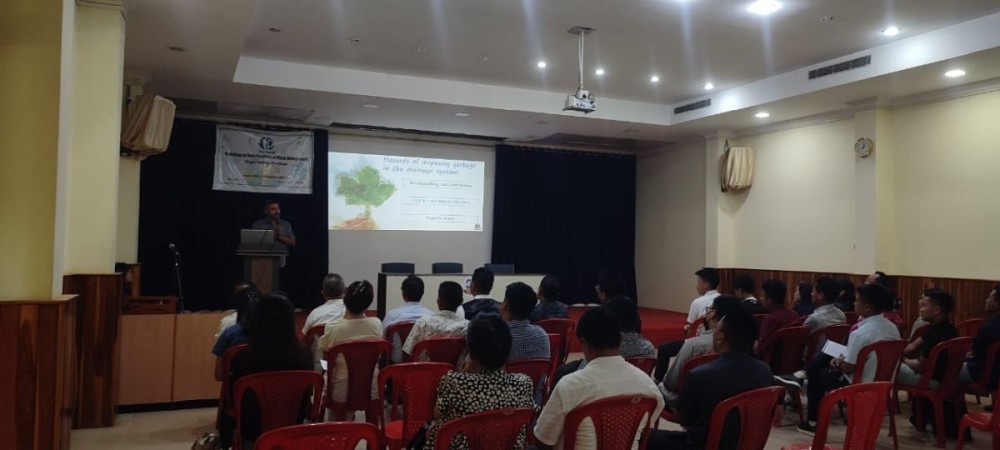
Urgent reforms in waste management stressed at workshop on waste management
DIMAPUR, JULY 13 (MExN): Dimapur generates 74.6 metric tonnes of waste daily — higher than the national per capita average — underscoring the urgent need for reforms in waste management, experts said at a one-day workshop on “Best Practices of Waste Management” held here on Friday.
Organised by PRO RURAL at Don Bosco Institute for Development & Leadership, River Belt Colony, Dimapur, the workshop was attended by officials from the District Administration, Dimapur Municipal Council (DMC), Nagaland Pollution Control Board (NPCB), NGOs, environmental activists, and student representatives. The objective was to deliberate and promote better waste management practices, especially in the wake of recent floods caused by torrential rains.
DMC Consultant Adrian Mahung, presenting official data, informed that with a population of 1,72,000, Dimapur generates 0.43 kg of waste per person daily — higher than the national average of 0.36 kg per capita. Of the total waste, 86 per cent is dumped at the DMC trenching ground, 9 per cent is collected by scrap dealers, and 5 per cent ends up in drains and streams.
Mahung highlighted key challenges including weak public engagement, poor segregation practices, and lack of inclusive planning. He flagged rising volumes of non-biodegradable waste such as sanitary pads and diapers as a major concern. His recommendations included strengthening public participation through education, implementing ward-wise segregation with reward systems, promoting waste-to-wealth initiatives, and involving waste workers in planning and decision-making.
Paul Lokho, Director of PRO RURAL, outlined three urgent steps: ensuring at least 80 per cent community participation in awareness programmes, adopting a public-private partnership (PPP) model involving capable NGOs and youth organisations, and engaging school students through incentivised campaigns like a “Zero Litter Campaign.”
Revenue Officer Bendang Longkumer highlighted challenges exposed by the recent floods, stressing the need for civic education and control over encroachment of natural drainages and water bodies.
NPCB Scientist B Yanthung warned of serious public health risks due to the absence of scientific waste management systems in Nagaland. He cited alarming findings such as microplastic contamination equivalent to ingesting one ATM card's worth of plastic per person per week.
He also drew attention to domestic animals feeding on toxic waste and entering the human food chain. Yanthung called for coordinated efforts between local authorities, civic bodies, and the community to ensure safe disposal and sustainable waste management, while outlining ongoing action plans initiated by the NPCB.
During the post-lunch session, individual activists and organisations such as E-Circle, Peace Channel, Bethesda, and Prodigals’ Home proposed action plans for youth, community, and institutional engagement.
Participants advocated for revamping municipal councils and urban local bodies (ULBs), forging stronger PPP alliances, and involving faith leaders such as pastors to promote civic responsibility in waste management.
The workshop reaffirmed the need for a multi-stakeholder approach, calling on urban local bodies, youth organisations, NGOs, and institutions to work together to reshape the state’s waste management narrative and position Nagaland as a smart, waste-wise state within the coming decade, organisers added.






